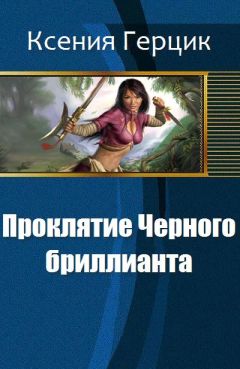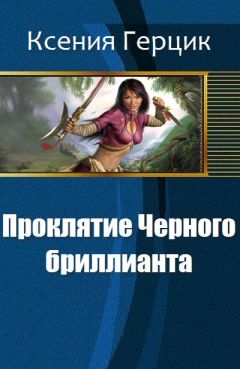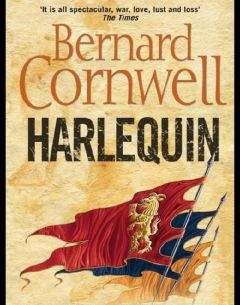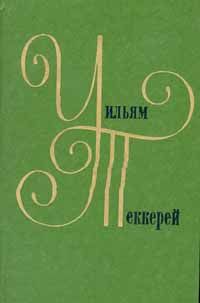Bernard Cornwell - The Grail Quest 2 - Vagabond
Something had touched Thomas's helmet and he turned to see the Scarecrow, Sir Geoffrey Carr, who had cracked his whip, just glancing the metal claw at its tip off the crest of Thomas's sallet. Sir Geoffrey coiled his whip as he jeered at Thomas. 'Sheltering behind monks' skirts, are we?'
Brother Michael restrained Thomas. 'Go, Sir Geoffrey,' the monk ordered, 'before I call down a curse onto your black soul.'
Sir Geoffrey put a finger into a nostril and pulled out something slimy that he flicked towards the monk. 'You think you frighten me, you one-eyed bastard? You who lost your balls when your hand was chopped off?' He laughed, then looked back to Thomas. 'You picked a fight with me, boy, and you didn't give me a chance to finish it.'
'Not nosy!' Brother Michael snapped.
Sir Geoffrey ignored the monk. 'Fighting your betters, boy? You can hang for that. No'
– he shuddered, then pointed a long bony finger at Thomas – 'you will hang for that! You hear me? You will hang for it.' He spat at Thomas, then turned his roan horse and spurred it back down the line.
'How come you know the Scarecrow?' Brother Michael asked.
'We just met.'
'An evil creature,' Brother Michael said, making the sign of the cross, 'born under a waning moon when a storm was blowing.' He was still watching the Scarecrow. 'Men say that Sir Geoffrey owes money to the devil himself. He had to pay a ransom to Douglas of Mesdale and he borrowed deep from the bankers to do it. His manor, his fields, everything he owns is in danger if he can't pay, and even if he makes a fortune today he'll just throw it away at dice. The Scarecrow's fool, but a dangerous one.' He turned his one eye on Thomas. 'Did you really pick a fight with him?'
'He wanted to rape my woman.'
'Aye, that's our Scarecrow. So be careful, young man, because he doesn't forget slights and he never forgives them.'
The English lords must have come to some agreement r they reached out their mailed fists and touched metal knuckle on metal knuckle, then Lord Outhwaite turned his horse back towards his men. 'John! John!' he called to the captain of his archers. 'We'll not wait for them to make up their minds,' he said as he dismounted, 'but be provocative.' It seemed Brother Michael's prognostication was right; the archers would be sent forward to annoy the Scots. The plan was to enrage them with arrows and so spur them into a hasty tack.
A squire rode Lord Outhwaite's horse back to the walled pasture as the Archbishop of York rode his destrier out in front of the army. 'God will help you!' he called to the men of the central division that he commanded. 'The Scots fear us!' he shouted. 'They know that with God's help we will make many children fatherless in their blighted land! They stand and watch us because they fear us. So we must go to them.' That sentiment brought a cheer. The Archbishop raised a hand to silence his men. 'I want the archers to go forward,' he called, 'only the archers! Sting them! Kill them! And God bless you all. God bless you mightily!'
So the archers would begin the battle. The Scots were stubbornly refusing to move in hope that the English would make the attack, for it was much easier to defend ground than assault a formed enemy, but now the English archers would go forward to goad, sting and harass the enemy until they either ran away or, more likely, advanced to take revenge.
Thomas had already selected his best arrow. It was new, so new that the green-tinted glue that was pasted about the thread holding the feathers in place was still tacky, but it had a breasted shaft, one that was slightly wider behind the head and then tapered away towards the feathers. Such a shaft would hit hard and it was a lovely straight piece of ash, a third as long again as Thomas's arm, and Thomas would not waste it even though his opening shot would be at very long range.
It would be a long shot for the Scottish King was at the rear of the big central sheltron of his army, but it would not be an impossible shot for the black bow was huge and Thomas was young, strong and accurate.
'God be with you,' Brother Michael said.
'Aim true!' Lord Outhwaite called.
'God speed your arrows!' the Archbishop of York shouted.
The drummers heat louder, the Scots jeered and the archers of England advanced. Bernard de Taillebourg already knew much of what the old monk told him, but now that the story was flowing he did not interrupt. It was the tale of a family that had been lords of an obscure county in southern France. The county was called Astarac and it lay close to the Cathar lands and, in time, became infected with the heresy. 'The false teaching spread,' Brother Collimore had said, 'like a murrain. From the inland sea to the ocean, and northwards into Burgundy.' Father de Taillebourg knew all this, but he had said nothing, just let the old man go on describing how, when the Cathars were burned out of the land and the fires of their deaths had sent the smoke pouring to heaven to tell God and His angels that the true religion had been restored to the lands between France and Aragon, the Vexilles, among the last of the nobility to be contaminated by the Cathar evil, had fled to the farthest corners of Christendom. 'But before they left,' Brother Collimore said, gazing up at the white painted arch of the ceiling, 'they took the treasures of the heretics for safekeeping.'
'And the Grail was among them?'
'So they said, but who knows?' Brother Collimore turned his head and frowned at the Dominican. 'If they possessed the Grail, why did it not help them? I have never understood that.' He closed his eyes. Sometimes, when the old man was pausing to draw breath and almost seemed asleep, de Taillebourg would look through the window to see the two armies on the far hill. They did not move, though the noise they made was like the crackling and roaring of a great fire. The roaring was the noise of men's voices and the crackling was the drums and the twin sounds rose and fell with the vagaries of the wind gusting in the rocky defile above the River Wear. Father de Taillebourg's servant still stood in the doorway where he was half hidden by one of many piles of undressed stone that was stacked in the open space between the castle and the cathedral. Scaffolding hid the cathedral's nearest tower and small boys, eager to get a glimpse of the fightil were scrambling up the web of lashed poles. The masons had abandoned their work to watch the two armies
Now, after questioning why the Grail had not helped the Vexilles, Brother Collimore did fall into a brief sleep and de Taillebourg crossed to his black-dressed servant 'Do you believe him?'
The servant shrugged and said nothing.
'Has anything surprised you?' de Taillebourg asked.
'That Father Ralph has a son,' the servant answere 'That was new to me.'
'We must speak with that son,' the Dominican said grimly, then turned back because the old monk had woken.
'Where was I?' Brother Collimore asked. A small trickle of spittle ran from a corner of his lips.
'You were wondering why the Grail did not help the Vexilles.' Bernard de Taillebourg reminded him.
'It should have done,' the old monk said. 'If they possessed the Grail why did they not become powerful?'
Father de Taillebourg smiled. 'Suppose,' he said to the old monk, 'that the infidel Muslims were to gain possession of the Grail, do you think God would grant them its power? The Grail is a great treasure, brother, the greatest of all the treasures upon the earth, but is not greater than God.'
'No,' Brother Collimore agreed.
'And if God does not approve of the Grail-keeper then the Grail will be powerless.'
'Yes,' Brother Collimore acknowledged.
'You say the Vexilles fled?'
'They fled the Inquisitors,' Brother Collimore said with a sly glance at de Taillebourg, and one branch of the family came here to England where they did some service to the King. Not our present King, of course.' the old monk made clear, 'but his great-grandfather, the last Henry.'
'What service?' de Taillebourg asked.
'They gave the King a hoof from St George's horse.' the monk spoke as though such things were commonplace. 'A hoof set in gold and capable of working miracles. At least the King believed it did for his son vas cured of a fever by being touched with the hoof. I am told the hoof is still in Westminster Abbey.'
The family had been rewarded with land in Cheshire, Collimore went on, and if they were heretics they did not show it, but lived like any other noble family. Their downfall, he said, had come at the beginning of the present reign when the young King's mother, aided by the Mortimer family, had tried to keep her son from taking power. The Vexilles had sided with the Queen and when she lost they had fled back to the continent. All of them except one son,' Brother Collimore said, the eldest son, and that was Ralph, of course. Poor Ralph.'
'But if his family had fled back to France, why did 'ou treat him?' de Taillebourg asked, puzzlement marring the face that had blood scabs on the abrasions vhere he had beaten himself against the stone that norning. 'Why not just execute him as a traitor?'
'He had taken holy orders,' Collimore protested, 'he could not be executed! Besides, it was known he hated his father and he had declared himself for the King.'
'So he was not all mad,' de Taillebourg put in drily.
'He also possessed money,' Collimore went on, 'he was noble and he claimed to know the secret of the Vexilles.'
'The Cathar treasures?'
'But the demon was in him even then! He declared himself a bishop and preached wild sermons in the London streets. He said he would lead a new crusade to drive the infidel from Jerusalem and promised that the Grail would ensure success.'
'So you locked him up?'
'He was sent to me,' Brother Collimore said reprovingly, 'because it was known that I could defeat the demons.' He paused, remembering. 'In my time I scourged hundreds of them! Hundreds!'
'But you did not fully cure Ralph Vexille?'
The monk shook his head. 'He was like a man spurred and whipped by God so that he wept and screamed and beat himself till the blood ran.' Brother Collimore, unaware that he could have been describing de Taillebourg, shuddered. 'And he was haunted by women too. I think we never cured him of that, but if we did not drive the demons clean out of him we did manage to make them hide so deep that they rarely dared show themselves.'
'Was the Grail a dream given to him by demons?' the Dominican asked.
'That was what we wanted to know,' Brother Collimore replied.
'And what answer did you find?'
'I told my masters that Father Ralph lied. That he had invented the Grail. That there was no truth in his madness. And then, when his demons no longer made him a nuisance, he was sent to a parish in the far south where he could preach to the gulls and to the seals. He no longer called himself a lord, he was simply Father Ralph, and we sent him away to be forgotten.'
'To be forgotten?' de Taillebourg repeated. 'Yet you had news of him. You discovered he had a son.'
The old monk nodded. 'We had a brother house near Dorchester and they sent me news. They told me that Father Ralph had found himself a woman, a house-keeper, but what country priest doesn't? And he had a son and he hung an old spear in his church and said it was St George's lance.'
De Taillebourg peered at the western hill for the noise had become much louder. It looked as though the English, who were by far the smaller army, were advancing and that meant they would lose the battle and that meant Father de Taillebourg had to be out of this monastery, indeed out of this city, before Sir William Douglas arrived seeking vengeance. 'You told your masters that Father Ralph lied. Did he?'
The old monk paused and to de Taillebourg it seemed as if the firmament itself held its breath. 'I don't think he lied,' Collimore whispered.
'So why did you tell them he did?'
'Because I liked him,' Brother Collimore said, 'and I did not think we could whip the truth out of him, or starve it from him, or pull it out by trying to drown him in cold water. I thought he was harmless and should be left to God.'
De Taillebourg gazed through the window. The Grail, he thought, the Grail. The hounds of God were on the scent. He would find it! 'One of the family came back from France,' the Dominican said, 'and stole the lance and killed Father Ralph.'
'I heard.'
'But they did not find the Grail.'
'God be thanked for that,' Brother Collimore said faintly.
De Taillebourg heard a movement and saw that his servant. who had been listening intently, was now watching the courtyard. The servant must have heard someone approaching and de Taillebourg, leaning closer to Brother Collimore, lowered his voice so he would not be overheard. 'How many people know of Father Ralph and the Grail?'
Brother Collimore thought for a few heartbeats. 'No one has spoken of it for years,' he said, 'until the new bishop came. He must have heard rumours for he asked me about it. I told him that Ralph Vexille was mad.'
'He believed you?'
'He was disappointed. He wanted the Grail for the cathedral.'
Of course he did, de Taillebourg thought, for any cathedral that possessed the Grail would become the richest church in Christendom. Even Genoa, which had its gaudy piece of green glass that they claimed was the Grail, took money from thousands of pilgrims. But put the real Grail in a church and folk would come to it in their hundreds of thousands and they would bring coins and jewels by the wagonload. Kings, queens, princes and dukes would throng the aisle and compete to offer their wealth. The servant had vanished, slipping soundlessly behind one of the piles of building stone, and de Taillebourg waited, watching the door and wondering what trouble would show there. Then, instead of trouble, a young priest appeared. He wore a rough cloth gown, had unruly hair and a broad, guileless, sunburned face. A young woman, pale and frail, was with him. She seemed nervous, but the priest greeted de Taillebourg cheerfully.
'A good day to you, father.'
'And to you, father,' de Taillebourg responded politely. His servant had reappeared behind the strangers, preventing them from leaving unless de Taillebourg gave his permission. 'I am taking Brother Collimore's confession,' de Taillebourg said.
'A good one, I hope,' Father Hobbe said, then smiled. 'You don't sound English, father?'
'I am French,' de Taillebourg said.
'As am I,' Eleanor said in that language, 'and we have come to talk with Brother Collimore.'
'Talk with him?' de Taillebourg asked pleasantly. 'The bishop sent us,' Eleanor said proudly, 'and the King did too.'
'Which King, child?'
'Edouard d'Angleterre,' Eleanor boasted. Father Hobbe, who spoke no French, was looking from Eleanor to the Dominican.
'Why would Edward send you?' de Taillebourg asked and, when Eleanor looked flustered, he repeated the question. 'Why would Edward send you?'
'I don't know, father,' Eleanor said.
'I think you do, my child, I think you do.' He stood and Father Hobbe, sensing trouble, took Eleanor's wrist and tried to pull her from the room, but de Taillebourg nodded at his servant and gestured towards Father Hobbe and the English priest was still trying to understand why he was suspicious of the Dominican when the knife slid between his ribs. He made a choking noise, then coughed and the breath rattled in his throat as he slid down to the flagstones. Eleanor tried to run, but she was not nearly fast enough and de Taillebourg caught her by the wrist and jerked her roughly back. She screamed and the Dominican silenced her by clapping a hand over her mouth.




